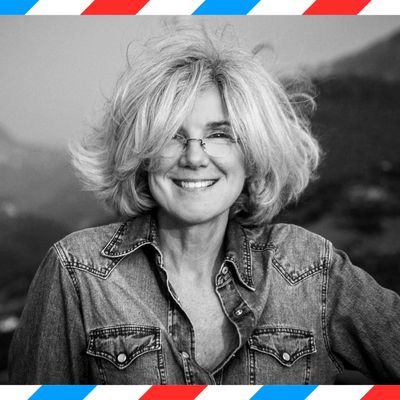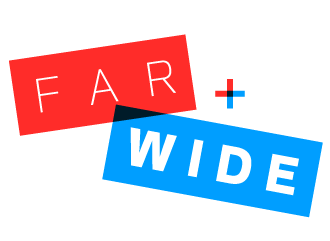

Far and Wide is the Cut’s practical and fantastical series about exploring.
Over the course of her 30-year career, National Geographic photographer Jodi Cobb has traveled to 65 countries for her critically acclaimed work. Every year she spends anywhere from six to ten months on the road, pursuing stories that delve into the lives of women all over the world, from China to Saudi Arabia. The Pulitzer Prize–nominated journalist was one of the first photographers to travel to China when it opened to the West, and she was also the the first woman named White House Photographer of the Year. Here, she tells us about her first assignment, the worst meal she’s ever had while traveling, and why she still screams when driving in India.
Was traveling always something that was important to you?
I grew up in Iran on a desert island that was the world’s largest oil refinery at the time — my dad was an engineer. It was an amazing place, but there wasn’t much there. My parents were total travelers; they were fearless. I’d been to 15 countries before I was 12. We’d cross the Atlantic on those big old ocean liners and cross the Pacific on those old Pan Am Clippers. When I came back to the States, I decided that journalism was the way to get back out into the world.
How did you get into photography?
The last semester of my senior year at the University of Missouri I took a photography course — it was love at first sight but I felt that I’d missed my chance because I had gone to school to be a writer. I got a job in New York City at House and Garden magazine. It wasn’t a good fit. I was young and my friends were hippies and musicians, so I spent all night every night photographing them at clubs, playing music, and recording sessions, then I’d drag myself into House and Garden in the morning. After a year of that I knew it was not going to work, so I went back to Missouri and got a master’s in photojournalism.
What was your first assignment?
For my master’s project at school, I did an in-depth study of a hippie commune in the Ozarks. I really had no idea what I was doing. I just went and hung out, sat in rooms, and took pictures of people interacting with each other and things. It turned out that I had a natural affinity for that.
What’s the most exciting trip you’ve ever taken?
One was for a story on beauty, where I went to ten countries to investigate cultural notions of why people make permanent changes to their bodies. I went everywhere from the hill tribes of Northern Thailand, to Papua New Guinea, to Paris for the French fashion shows.
The best trip was to the Omo Valley of Ethiopia, which is a very, very remote place. All I could think of was photographing the Mursi people, the women with the big, large lip plates inserted in their lower lips. It was very hard to get to, the tribes were always at war with each other, it was very dangerous. There were no roads, no phones, and no food. I was in a Range Rover on safari for three weeks with three Ethiopian men, only one spoke English. We had to camp out every night. My tent was surrounded by these guys with AK-47s sitting right outside all night long. I’d be popping my malaria pills, then I’d get in the tent and pop my Ambien and hope that I would get to sleep before the armed guards started snoring. There was two layers of mosquito netting! Oh my god, it was so great.
When you’re traveling, are you ever treated differently as a woman?
One of my very first assignments for National Geographic was a story on West Virginia. I spent months by myself driving around West Virginia trying to find a story. I would go back to this funky little motel every night and I would eat in their funky little restaurant. Finally, the waiter came up to me and told me that I was the most unsuccessful hooker that he had ever encountered. He offered to help me out — that was the road not taken, but I realized how people perceive me when I’m just having the time of my life.
You were one of the first photographers to cross China when it reopened to the West, what was that like?
It was a 7,000-mile trip across the country from Beijing, down to the Burma border, and then down to the Vietnam border. It was seeing things that Westerners hadn’t seen for decades. The other side of that coin was that most Chinese had never seen a Westerner before. Huge crowds would form, the car would be surrounded by literally dozens of people just staring silently. People would fall off their bicycles and the babies would burst out crying — they thought I was a ghost. I had to have a government minder with me 24/7. They wouldn’t let me shoot things; it was constant, constant frustration of not being able to photograph what I wanted to.
What’s the worst meal you’ve had on the road?
On that trip, one night a plate of fried bees, deer tendon, and goat fetus was delivered. My minder started telling me that everything was chicken. Everything was not chicken — there was no disguising fried bees, they looked like bees, they had their wings. I had a whole duffel bag full of M&M’s with me, so I had M&M’s and an orange for dinner.
Do you prefer planes, trains, or automobiles?
Camels and donkeys and boats and elephants, whatever it takes to get me where I want to go. I’m sure though I’m on death’s door every day on the roads in India. I have to sit directly behind the driver. I can’t see the road in front of me, I scream at all the near misses.
Where do you want to travel next?
There’s so many stories I still want to tell. I’m really involved in human-rights issues and issues involving women. I would like to update my “21st Century Slaves” project.
How do you pack for your trips?
I’m a terrible packer. I want to be comfortable and I want to have what I need. So I always end up taking more than I need. Also, I never knew where I was going to be. I could end up in a palace photographing the king or suddenly at a state dinner. So-called travel clothes that roll up into a little ball do not spark joy for me, I can’t stand them. I don’t want to look like a tourist, I want to look like the people I’m photographing.
What is it like when you’re not traveling and you’re back home in D.C.?
I feel very small. When I’m out there traveling, I feel that my mind is bigger, my brain is bigger, it’s more open, aware, and alive.




